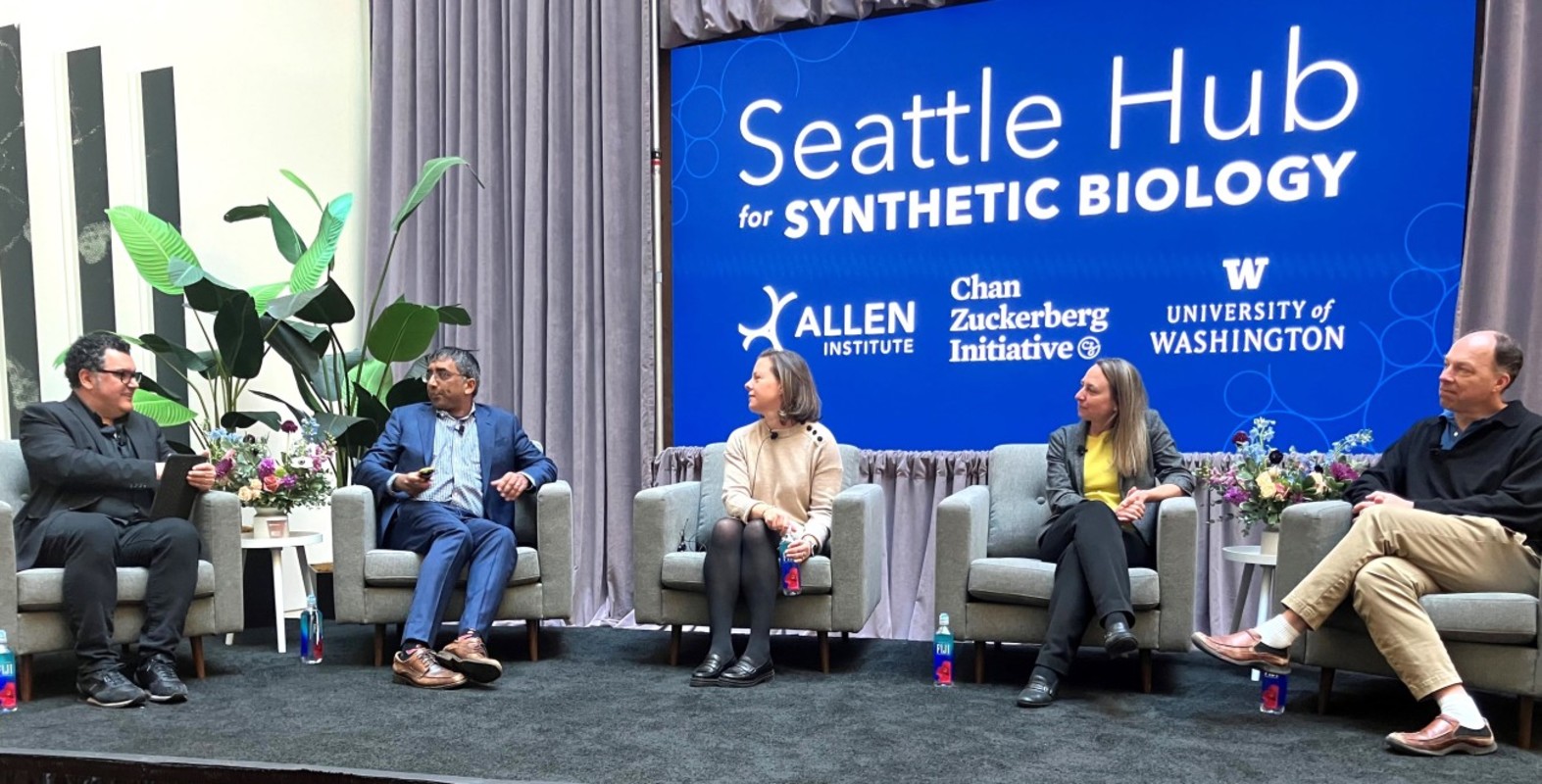 [Editor’s note: The Allen Institute on April 1 hosted a celebration of The Seattle Hub for Synthetic Biology (Seattle Hub), which included a panel discussion. This landmark collaboration among Allen Institute, Chan Zuckerberg Initiative, and the University of Washington is designed to build new technologies to record the history of cells over time. Here are excerpted remarks from each of the five presenters; watch the complete discussion here.]
[Editor’s note: The Allen Institute on April 1 hosted a celebration of The Seattle Hub for Synthetic Biology (Seattle Hub), which included a panel discussion. This landmark collaboration among Allen Institute, Chan Zuckerberg Initiative, and the University of Washington is designed to build new technologies to record the history of cells over time. Here are excerpted remarks from each of the five presenters; watch the complete discussion here.]
“Seattle Hub for Synthetic Biology aims to help us address questions like, ‘If we happen to have a specific mutation that causes disease, how do we understand how that mutation leads to that disease?’ We know of a correlation, but we don’t understand the process. This initiative of the Allen Institute, Chan Zuckerberg Initiative, and the UW has huge implications for studying biology and human life, as well as health and disease. It could transform everything we do. That is our hope.”
Rui Costa, D.V.M., Ph.D., President and CEO, Allen Institute
"The 100-year goal of the Chan Zuckerberg Biohub Network is to cure, prevent, and manage all disease in the next 100 years, which seems audacious. It is audacious. But underlining that goal is the point that we don’t plan to do this alone…. It is efforts like SeaHub, bringing together these amazing institutions and individuals to devise new tools, new technologies, and new discoveries and a new generation of researchers – including the people in this room – who know how to work across different disciplines and who are inspired to tackle really hard problems."
Amy E. Herr, Ph.D., Vice President, CZ Biohub Network
"We each come with our own unique abilities and expertise, and we have learned that doing science collaboratively is way more efficient than staying in silos. Having this interesting hybrid of academics and industry in a combined model and combining those two together in a city that values collaboration is going to speed up this project. And by drawing on each of our institution’s expertise…. One of the things I am excited about is the recorder mouse. A mouse that can record what its cells are seeing. More importantly for me is watching the distribution of that mouse to other people who can then use it in developmental biology, in neuroscience, and elsewhere.
Marion Pepper, Ph.D., Seattle Hub Co-Director and Professor and Chair, UW Immunology
"Our North Star is understanding the mysteries of the cell and how cells interact with systems. That is driven, in large part, by the observation that we are in the midst of a revolution in biology…. It’s inescapable that the Seattle Hub for Synthetic Biology will lead to great scientific discoveries over time. So, this is really foundational technology to the things we at CZI care about and, ultimately impact human health."
Steve Quake, D.Phil., Head of Science, Chan Zuckerberg Initiative
"The synergies of these three organizations are very powerful, and there are a lot of complementary strengths. It's incredible how quickly some new technologies can flip the scientific landscape. In the last 20 years, we have seen it with next generation DNA sequencing and then again with CRISPR. Unqualified success is flipping the landscape."
Jay Shendure, M.D., Ph.D., Seattle Hub Lead Scientific Director and Scientific Director of the Brotman Baty Institute



